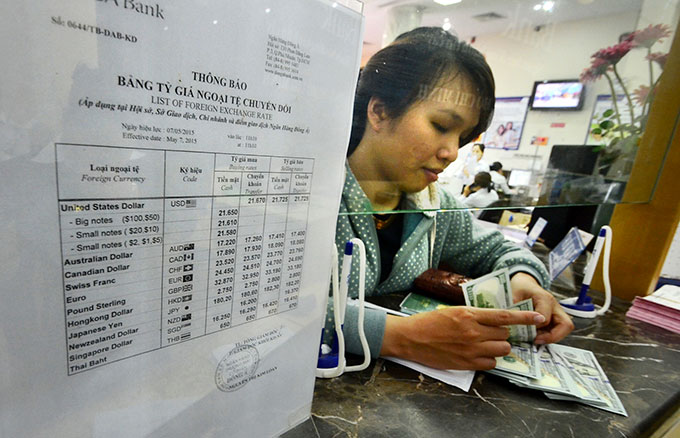The State Bank of Vietnam (SBV), the country’s central bank, has asked Ocean Bank, GP.Bank, and Vietnam Construction Bank to set aside over VND11 trillion (US$500 million) in cash reserves after acquiring them, local media quoted an official from the SBV as saying at a conference in Hanoi on Monday.
The money is reserved so that the three banks, which have run out of liquid assets, can pay depositors as well as lend to businesses as required, news website VnExpress cited Nguyen Huu Nghia, Chief Inspector of the SBV, as saying.
The SBV took over loss-making Vietnam Construction Bank, Ocean Bank and GP.Bank for VND0 (zero) in February, April and July, respectively, under a scheme to restructure the banking system, which kicked off earlier this year.
After being acquired by the central bank, all three banks have begun to work well and generate more money to contribute to liquid reserves.
Specifically, the available cash reserves at Ocean Bank, GP.Bank and Vietnam Construction Bank currently stand at VND7 trillion, VND3 trillion, and VND1 trillion, respectively, Nghia said.
"This is the amount of money available to be ready to pay people and lend to local enterprises who have new business plans and have the need to expand," he said.
The money has been generated from many sources of the three banks, and does not come from the state budget, he noted.
The first and most important source is the capital of the banks, collected from the deposits of individuals and other economic organizations, he said.
"After being acquired by the SBV, new waves of deposits reappeared, which helped end the mass withdrawal phenomenon and regain liquidity," Nghia added.
The second source comes from stronger local credit institutions assigned by the SBV to support the three banks, including Vietcombank and Vietinbank.
However, the support from Vietcombank and Vietinbank is mostly in governance and execution, not in the form of funds, Nghia said.
The third source of capital stems from the sale of bad debts and the disposal of the other unprofitable assets of all three banks.
The last is refinancing from the SBV, he said.
"In the worst-case scenario, when the banks go bankrupt, the central bank is still capable of fulfilling other debt obligations,” he added.
In addition, the SBV is reducing its special control of the three banks thanks to their improving liquidity and business performance, the chief inspector said.
The improving liquidity was among the reasons why the SBV has started to lessen its special supervision over the three lenders, allowing them to resume normal lending within several safe sectors, Nghia said.
Like us on Facebook or follow us on Twitter to get the latest news about Vietnam!



















































